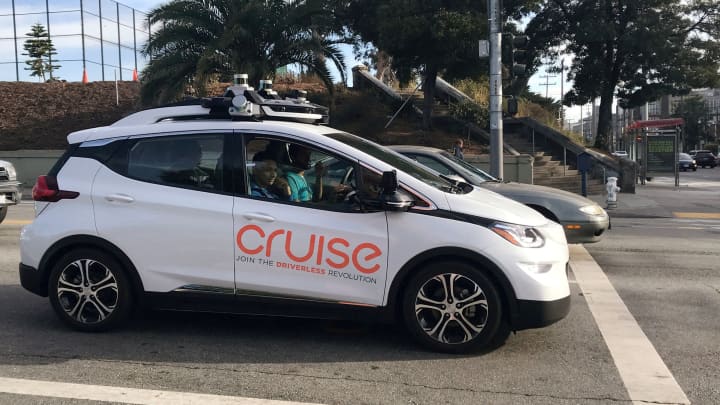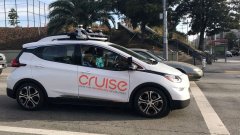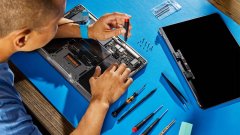
The decision was also based on the policy that "Any act or omission of the manufacturer or one of its agents, employees, contractors, or designees which the department finds makes the conduct of autonomous vehicle testing on public roads by the manufacturer an unreasonable risk to the public," per the department's statement.
"We learned today at 10:30 am PT of the California DMV's suspension of our driverless permits," Cruise spokesperson Hannah Lindow told CNBC in a statement. "As a result, we will be pausing operations of our driverless AVs in San Francisco."
Cruise said it will continue to cooperate with an investigation by the California DMV.
Last week, federal auto safety regulators they were investigating Cruise following pedestrian injuries. The probe, spearheaded by the National Highway Traffic Safety Administration, was prompted by multiple reports involving pedestrian injuries and Cruise vehicles in recent months, and it concerns an estimated 594 self-driving Cruise vehicles, according to the filing.
Philip Koopman, an automotive safety researcher and associate professor of computer engineering at Carnegie Mellon University, told CNBC that in any "life-critical system" that encounters a "severe mishap," it's important to enter a practice known as a "safety stand down," involving suspending or scaling back operations. But that's been a problem for Cruise in the past, Koopman told CNBC via email.
"What we have seen is that Cruise has not done such safety stand downs voluntarily," Koopman told CNBC. "Rather CA DMV has forced them do safety stand downs — once after the fire truck crash with a reduction in the size of the operational fleet, and now after this pedestrian crash."
Cruise's 24/7 robotaxi service, approved in a 3-to-1 vote by California's Public Utilities Commission more than two months ago, made San Francisco the first major U.S. city to allow two robotaxi companies to compete for service "at all hours of day or night." It allows Waymo, owned by Google parent company , and Cruise to expand their fleets as needed and charge for fares at any time of day.
One day after the approval, as many as 10 of Cruise's driverless vehicles caused a traffic jam in San Francisco. On Aug. 18, just over a week after Cruise received approval for expanded service, the DMV requested Cruise "immediately reduce its active fleet of operating vehicles by 50%" until an investigation was completed, according to the DMV.
The DMV on Tuesday said it provided Cruise with a guide to apply for the permits to be reinstated, but it would not approve such an appeal unless Cruise fulfills the requirements "to the department's satisfaction."
The DMV's decision does not affect Cruise's permit for testing with a safety driver, according to the department.
Last week, Cruise CEO Kyle Vogt on LinkedIn: "Safety is our top priority, and our passion is continuous improvement. As a result, our AVs continue to get better."
—CNBC's Lora Kolodny contributed reporting.
Don't miss these CNBC PRO stories:



